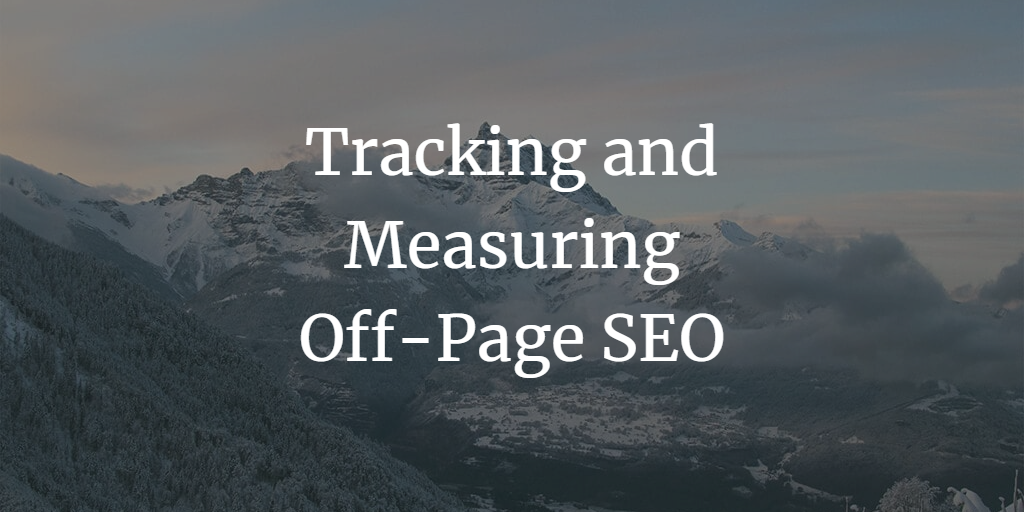
Table of Contents
Introduction
Why Off-Page SEO Matters
Key Off-Page SEO Metrics
Domain Authority and Page Authority
Backlinks
Referring Domains
Organic Traffic
Social Media Metrics
Off-Page SEO Monitoring
Analyzing and Reporting Off-Page SEO Performance
Off-Page SEO Measurement Tools
Off-Page SEO Trends for 2023
Conclusion
Introduction
Welcome to Tracking and Measuring Off-Page SEO in 2023, a comprehensive guide designed to help you unlock the full potential of off-page SEO. In this guide, you'll learn how to track and measure your off-page SEO efforts, and discover the latest tools and best practices to maximize the impact of your off-page optimization strategies.
Why Off-Page SEO Matters
Off-page SEO plays a crucial role in improving your website's search engine rankings, online visibility, and overall credibility. By earning high-quality backlinks, engaging in social media marketing, and building a positive online reputation, you can increase your website's authority, drive organic traffic, and grow your business.
Key Off-Page SEO Metrics
To effectively track and measure off-page SEO, focus on the following key metrics:
Domain Authority and Page Authority
Domain Authority (DA) and Page Authority (PA) are metrics developed by Moz that predict how well a website or web page will rank on search engine result pages (SERPs). Higher DA and PA scores indicate better potential for ranking and are influenced by factors like the number and quality of backlinks, referring domains, and social media signals.
Backlinks
Backlinks are links from other websites that point to your website. They play a significant role in search engine rankings as they signal trust and credibility. When tracking backlinks, consider the following factors:
Quantity: The total number of backlinks your website has
Quality: The authority and relevance of the websites linking to you
Diversity: The variety of websites linking to you (e.g., industry blogs, news sites, directories)
Referring Domains
Referring domains are the unique websites that link to your website. This metric is important because having a diverse set of high-quality referring domains can improve your website's authority and search engine rankings. Monitor the quantity, quality, and diversity of your referring domains to ensure a healthy backlink profile.
Organic Traffic
Organic traffic refers to visitors who arrive at your website through search engine results, rather than paid advertising or other sources. This metric is a key indicator of off-page SEO success, as it demonstrates the effectiveness of your backlink building and social media marketing efforts in driving targeted traffic to your website.
Social Media Metrics
Social media plays a vital role in off-page SEO, as it can generate brand awareness, drive traffic, and earn backlinks. Key social media metrics to track include:
Follower count
Engagement rate (likes, comments, shares)
Click-through rate (CTR) on shared links
Social media referral traffic to your website
Off-Page SEO Monitoring
Regularly monitor your off-page SEO performance to identify trends, uncover opportunities, and ensure your strategies are effective. Set up alerts for new backlinks, mentions, and competitor activity to stay informed and responsive to changes in your industry.
Analyzing and Reporting Off-Page SEO Performance
Use data-driven analysis and reporting to communicate off-page SEO results to stakeholders and guide decision-making. Track your progress over time, benchmark against competitors, and correlate off-page SEO metrics with business outcomes (e.g., conversions, sales) to demonstrate ROI.
Off-Page SEO Measurement Tools
Leverage various off-page SEO measurement tools to streamline your tracking and analysis efforts. Some popular tools include:
Moz and Ahrefs for domain authority, backlink analysis, and keyword rankings
Google Analytics for organic traffic and referral data
BuzzSumo for social media and content performance
Mention and Google Alerts for brand monitoring and competitor analysis
Off-Page SEO Trends for 2023
Stay ahead of the competition by keeping an eye on emerging trends in off-page SEO, including:
The growing importance of visual content (e.g., images, videos) in link building
The rise of voice search and the impact on organic traffic
The increasing emphasis on user experience and its influence on search engine rankings
The growing role of social media platforms in driving organic traffic and backlinks
Conclusion
Tracking and measuring off-page SEO is essential for optimizing your website's search engine performance and driving business growth in 2023. By focusing on key metrics, leveraging the right tools, and staying informed of emerging trends, you can maximize the impact of your off-page SEO efforts and achieve lasting success.


